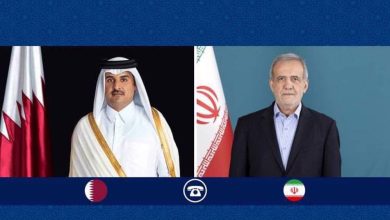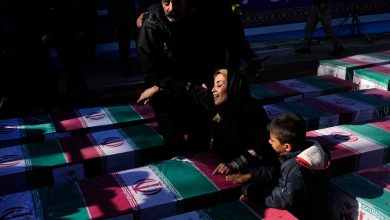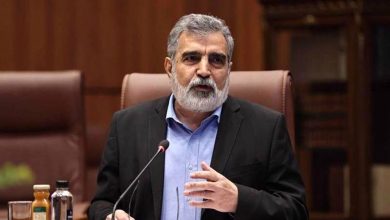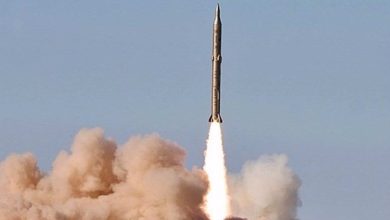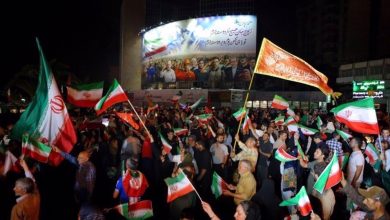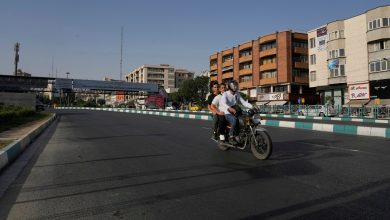New Year message: Leader of Islamic Ummah and Oppressed Imam Ayatollah Khamenei urges the nation to enhance production through increased investments
In a New Year message, Ayatollah Seyyed Ali Khamenei, the Leader of the Islamic Revolution, extended his congratulations to the Iranian people on the occasion of Nowruz. He also urged for enhanced "Investments for Production" to bolster the nation's economic growth.
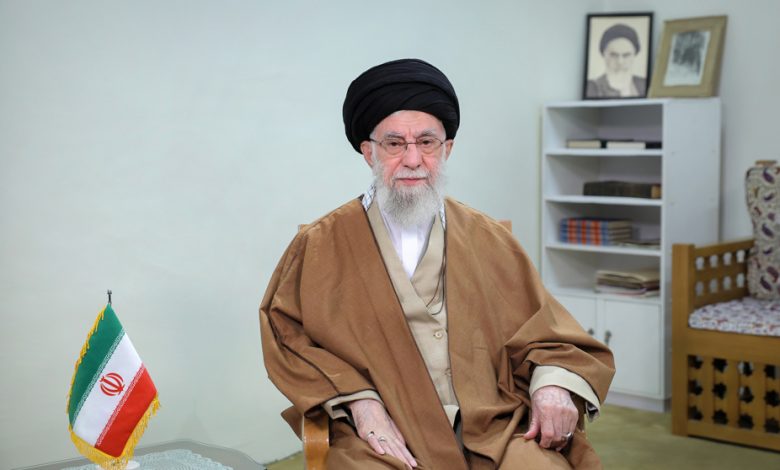
In a televised address to the nation on Thursday afternoon, Ayatollah Khamenei delivered remarks to mark the occasion of the Persian New Year.
The Supreme Leader of the Islamic Revolution emphasized the crucial necessity for both governmental entities and the general populace to actively engage in and champion investments aimed at bolstering production capabilities.
Ayatollah Khamenei highlighted the importance of investment in driving economic growth, stating that production thrives when backed by financial support.
The Leader strongly denounced the latest Israeli assaults on Gaza, urging nations worldwide to collectively stand against the US-Israeli actions in the blockaded coastal enclave.
Addressing the situation in Yemen, Ayatollah Khamenei characterized the United States’ military actions against the Yemeni populace as criminal offenses that necessitate cessation.
He conveyed his aspirations for prosperity, triumph, and well-being for the Muslim Ummah as the new year begins.
Ayatollah Khamenei extended his well-wishes to the Iranian people, expressing hopes for their happiness, unity, and success.
The complete text of the Leader’s New Year address is presented as follows:
In the invocation of divine blessings, referencing the qualities of compassion and mercy.
The One Who Transforms Hearts and Visions,
The individual overseeing both nocturnal and diurnal operations,
Alterer of conditions and scenarios,
Strive to optimize our current situation to achieve the most favorable outcomes possible.
As the New Year commences, it coincides with the sacred nights of Qadr and the commemoration of the martyrdom of Imam Ali (PBUH), known as the Commander of the Faithful. It is anticipated that the blessings of these revered nights and the guidance of Imam Ali (PBUH) will extend to the people of our nation and all individuals for whom the New Year is marked by the celebration of Nowruz.
The calendar year 1403 AHS, spanning from March 20, 2024, to March 20, 2025, was marked by a series of significant events that bore a striking resemblance to those of 1981, presenting substantial challenges and adversity for the people. The year commenced with the deeply mourned loss of the Iranian nation’s esteemed President, the late Mr. Ebrahim Raisi, whose martyrdom cast a long shadow over the period. This tragedy was preceded by the martyrdom of several key advisors in Damascus. Following these incidents, a cascade of developments unfolded in Tehran and subsequently in Lebanon, leading to the loss of prominent figures whose absence was felt keenly by both the Iranian people and the wider Islamic community. These events were characterized by profound sorrow. Additionally, persistent economic difficulties exerted considerable strain on the population throughout the year, with the situation intensifying in the latter months. The challenges associated with day-to-day living remained a constant source of hardship during this period.
In a remarkable turn of events, the resilient spirit, unity, and preparedness of the Iranian people were vividly demonstrated in the wake of a significant event—the loss of the President. The massive public turnout during the funeral procession, coupled with the slogans and high morale exhibited by the citizens, underscored their steadfastness in the face of adversity. Despite the gravity of the situation, this tragic incident did not weaken the resolve of the Iranian populace. Impressively, the nation swiftly organized elections within the legally designated timeframe, successfully electing a new President and forming a government to maintain continuity in the country’s administration.
These issues hold considerable importance and reflect the robust morale, capabilities, and spiritual resilience of the Iranian nation, for which we express gratitude. Furthermore, during the recent months when numerous individuals in Lebanon—both our religious brethren and Lebanese nationals—encountered challenges, the Iranian nation extended its support wholeheartedly. The significant outpouring of assistance from the Iranian people toward their Lebanese and Palestinian counterparts serves as a memorable and timeless incident in the nation’s history.
The generous contributions of gold by Iranian women, along with the support from citizens, underscore a significant national resolve. This collective spirit and determination highlight the nation’s strength and are pivotal assets for Iran’s future. These resources are poised to be utilized effectively for the country’s advancement. With continued divine blessings, these contributions will benefit Iran’s enduring prosperity.
In the previous year, the motto “Surge in production through people’s participation” was introduced, reflecting a crucial necessity for the nation. However, the developments throughout the year 1403 AHS hindered the full realization of this goal. Despite notable efforts from the government, citizenry, private sector, investors, and entrepreneurs, the results fell short of anticipated achievements. As such, the economy remains the primary concern this year. Consequently, expectations from the government officials and the public continue to emphasize economic issues. The slogan for this year will once again prioritize economic themes, particularly focusing on stimulating investment in the economic sector.
A key issue in the nation’s economic landscape is the emphasis on production investments. A significant uptick in production activity is observed when such investments are made, with the onus predominately on citizens to initiate these financial commitments. The government is tasked with devising strategies to facilitate public investment. However, in scenarios where citizens either lack the incentive or resources to invest, the government is positioned to intervene—not as a competitor, but as a supporter. In situations where public engagement is absent, the government can undertake investment responsibilities. Overall, investment in production is vital for both the economy’s health and addressing citizens’ livelihood challenges. Enhancing living conditions requires strategic planning and cannot be achieved without these foundational measures.
Both state authorities and citizens must diligently commit to and advance investments in production with unwavering determination and enthusiasm. The government’s responsibility lies in fostering a conducive environment and eliminating barriers to productivity. Meanwhile, the populace is tasked with channeling resources into both minor and major investments aimed at bolstering production. By directing capital towards productive ventures, funds will no longer be siphoned into detrimental activities such as acquiring gold, purchasing foreign currency, or similar pursuits. The cessation of these adverse activities is anticipated. The Central Bank has a pivotal role to play in this context, along with the government’s potential implementation of a range of impactful strategies. Accordingly, this year’s guiding principle is “Investments for Production,” a slogan poised to enhance public welfare. Through collaborative efforts, encompassing meticulous governmental planning and active public involvement, the nation aspires to effectively address this challenge.
In recent developments, tensions have once again surged as the ongoing conflict has intensified, resulting in new hostilities in Gaza. The attacks attributed to the Israeli regime have sparked widespread condemnation, described as a significant humanitarian crisis. Calls for unity among the global Islamic community have surfaced, urging them to overcome internal divisions and collectively address what is perceived as a matter impacting the entire Ummah. Additionally, there have been appeals to advocates of freedom worldwide, including within the United States, Europe, and other regions, to denounce these acts. The violence has reportedly led to the loss of children’s lives, significant destruction of homes, and the displacement of civilians, prompting urgent calls for intervention to halt the humanitarian tragedy.
The United States finds itself implicated in the unfolding tragedy, with global political analysts suggesting that these actions are occurring with the endorsement or direct involvement of the US. Consequently, the US bears partial responsibility for these events. A similar scenario is playing out in Yemen, where the assaults on the population and civilian infrastructure constitute ongoing violations that urgently require cessation.
In a message marking the start of the new year, aspirations were expressed for the Islamic Ummah to experience goodness, prosperity, and victory, with the hope that the Iranian nation can embrace the upcoming year with happiness, unity, and success. It was conveyed that divine favor would ensure these blessings endure throughout the year. Additionally, it is hoped that the Imam of the Time (Imam Mahdi), along with the revered spirit of Imam Khomeini and the esteemed souls of the martyrs, find satisfaction and contentment in these efforts.
Peace, mercy, and blessings of God be upon you.

